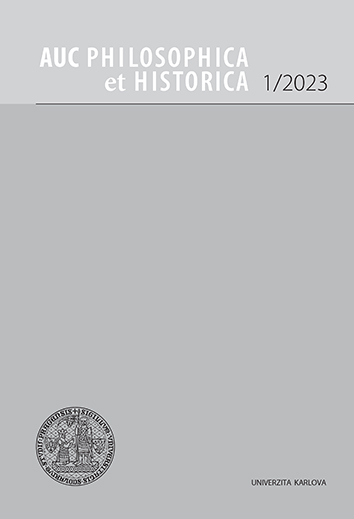AUC Philosophica et Historica je víceoborový akademický časopis zaměřený na humanitní a společenskovědné obory (filozofie, psychologie, pedagogika, sociologie, obecné, české a hospodářské dějiny, pomocné vědy historické a archivnictví, etnologie).
Časopis je indexován v databázích CEEOL, DOAJ a EBSCO.
AUC PHILOSOPHICA ET HISTORICA, Vol 1997 No 4 (2000), 9–19
Pojem regionu u Emanuela Chalupného
[The Concept of Region in the Work of Emanuel Chalupný]
Miroslav Pauza
DOI: https://doi.org/10.14712/24647055.2018.47
zveřejněno: 12. 01. 2018
Abstract
One of the most important aspects of Chalupný’s sociology is his concept of regionality. It is based on a specific intellectual response to the internal experience of reality (i.e. a philosophical impulse. but its content and method are sociological and its final intentions are national-cultural. The core (of the concept) is the notion of the region defined as a unit of type that determines style. The individuality of the whole type that refers to the region as its final substrate. Regions are the basic elements of the whole „economy of the world“. The development of humanity is not „centralised“ but „multilinear“, i.e. a matter of parallel regional development. The moral evaluation of individual „styles“ is alien to Chalupný, although civilisational types can of course be compared from the perspective of their alleged „unity of function“. The optimum state in this context is represented by what is known as „communalism“, and the Czech nation in particular is regarded as enjoying exceptionally promising preconditions for the development of this quality in practical social terms. Chalupný considers that the positive use of these preconditions depends on the production of a regional sociology of „Czech“ identity, based on regional ecology, biology and psychology. The article defines the assumptions behind this „sociology: and contrasts it – in the Czech context with Masaryk’s philosophy of Czech identity – and – in the European context – with Husserl’s phenomenology. From this last point of view, Chalupný’s concept emerges as „phenomenology without transcendentalism“.
